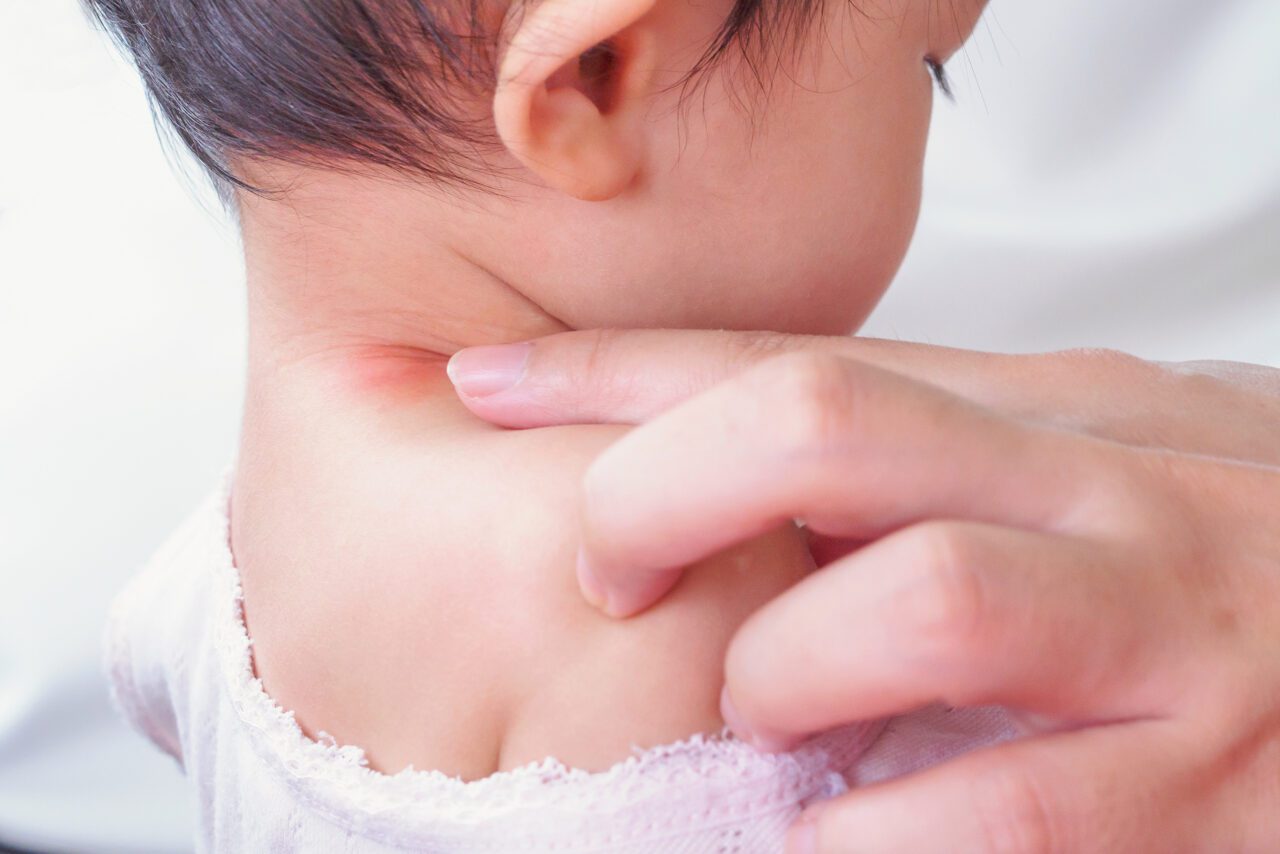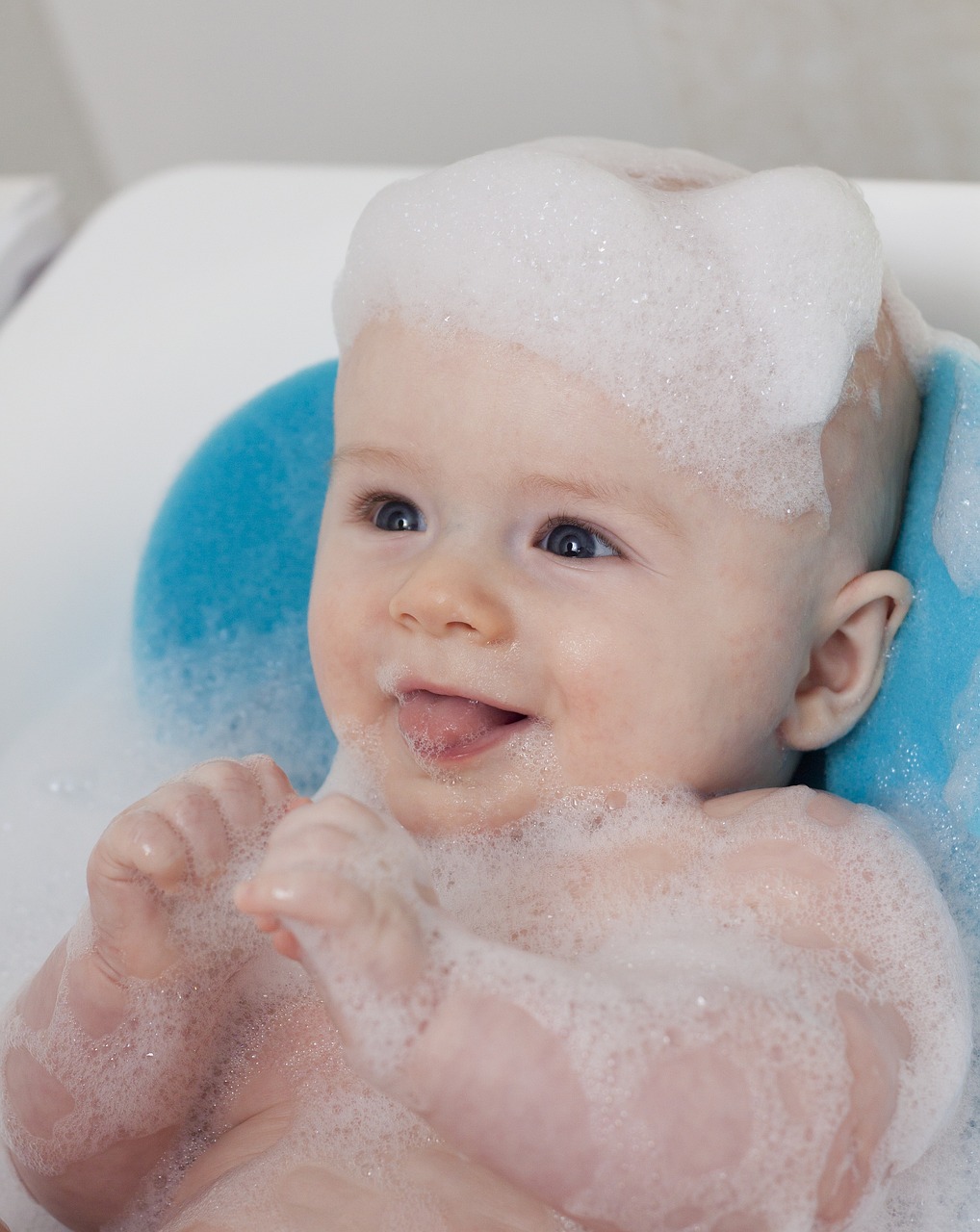Baby eczema can be a real bee in your bonnet, can’t it? The itching, the redness, the discomfort—nobody wants to see their little one going through that. And while we can’t wave a magic wand to make it disappear, we can certainly follow some tried and true measures to prevent its occurrence. So, without any further ado, let’s dive right in!
Understanding Baby Eczema
1. What is Baby Eczema?
Baby eczema, also known as infantile eczema, is a condition characterized by dry, itchy, and red skin. It’s like an uninvited guest that overstays its welcome. So, what causes it? It’s often a combination of genetic and environmental factors.
2. Symptoms of Baby Eczema
Eczema in babies typically shows up as patches of red or dry skin. The skin may also show white patches, a sign of severe dryness. It’s like the Sahara desert decided to take up residence on your baby’s skin. But, there’s more. The skin might also develop tiny bumps, somewhat similar to a goosebump reaction.

The Impact of Eczema
Psychological Impact of Baby Eczema
Baby eczema isn’t just skin deep. It affects more than just the surface. Think of it as an iceberg; what you see is just the tip of the problem. The itching and discomfort can lead to sleep disturbances and changes in behavior, which can be quite distressing for parents.
Physical Implications of Baby Eczema
On the surface level, baby eczema can lead to dry, flaky, and inflamed skin. It’s like your baby’s skin is trying to tell you something, and it’s important to listen and respond accordingly.
The Journey to Prevent Baby Eczema
Role of Genetics in Baby Eczema
Is baby eczema a result of genetics playing the blame game? Well, sort of. Research shows that children are more likely to develop eczema if their parents have it. It’s like inheriting your mom’s blue eyes or your dad’s curly hair—only a lot less fun.
Environmental Factors and Baby Eczema
It’s not just genetics pulling the strings; the environment plays a pivotal role too. Baby eczema can be triggered by certain allergens, irritants, and even weather conditions. Think of it like your baby’s skin throwing a tantrum in response to these factors.

Preventing Baby Eczema: Tips for Healthy Skin
Bathing Routine and Baby Eczema
How can a bathing routine help in preventing baby eczema? Well, as it turns out, a lot! The right routine can help maintain your baby’s skin moisture and keep it from drying out. It’s like giving your baby’s skin a tall glass of water.
Importance of Moisturizing
Moisturizing plays a crucial role in maintaining your baby’s skin health and preventing eczema. It’s like the knight in shining armor, fighting off the dryness dragon.
Role of Diet in Preventing Baby Eczema
You are what you eat, right? This holds true for your baby’s skin health too! Including certain foods in your baby’s diet can help bolster their skin’s natural defenses and help prevent eczema flare-ups.
- The Role of Clothing in Baby Eczema Prevention
What your baby wears can play a significant role in preventing eczema. Soft, breathable fabrics can keep your baby’s skin happy and eczema-free. It’s like choosing the perfect outfit for a comfortable, itch-free day.
Treatment Options for Baby Eczema
Over-the-Counter Treatment Options
OTC creams and ointments can be life-savers when it comes to managing baby eczema. But remember, it’s not a one-size-fits-all solution, and what works for one baby might not work for another.
Prescribed Treatments for Severe Cases
In some cases, when baby eczema decides to stick around like a bad penny, prescription treatments may be necessary. But don’t worry! These are usually safe and effective for babies.
The Role of Allergy Testing
Does your baby’s eczema flare up after eating certain foods or exposure to certain environments? It’s like your baby’s skin is raising a red flag, and allergy testing can help identify the culprits.
Complementary and Alternative Treatments
Alternative treatments such as herbal remedies or acupuncture can sometimes offer relief for baby eczema. However, it’s crucial to discuss these with your pediatrician before trying them.
Living with Baby Eczema
Stress Management for Babies
Eczema and stress in babies can go hand in hand, like two peas in a pod. Helping your baby manage stress can reduce eczema flare-ups.
A Day in the Life of a Baby with Eczema
Living with eczema can be challenging, but with the right strategies, it’s absolutely manageable. Think of it as a marathon, not a sprint.
The Importance of Regular Check-ups
Regular check-ups can help monitor your baby’s eczema and prevent flare-ups. It’s like having a regular “touch-base” with your baby’s skin health.
The Role of Support Groups
Parenting a baby with eczema can sometimes feel like you’re climbing Mount Everest. But remember, you’re not alone! Support groups can provide much-needed advice and comfort.
Frequently Asked Questions
- What is the first sign of baby eczema?
The first sign of baby eczema is usually dry, red, and itchy skin. You might also notice small, raised bumps.
- Can baby eczema go away on its own?
Sometimes, baby eczema can go away as the child grows older. However, some children may continue to experience symptoms as they grow.
- How can I prevent my baby from getting eczema?
To prevent baby eczema, maintain a regular bathing and moisturizing routine, provide a balanced diet, and dress your baby in soft, breathable clothing.
- Does breastfeeding prevent baby eczema?
While breastfeeding has many benefits, there’s no conclusive evidence to suggest it can prevent baby eczema.
- How often should I bathe my baby if they have eczema?
Generally, you should bathe your baby once a day. However, each baby is unique and it’s always best to consult with your pediatrician.
- Is baby eczema painful?
Baby eczema can cause discomfort and itching, but it isn’t usually painful.
Conclusion
Preventing baby eczema and maintaining healthy skin for your little one doesn’t have to be like finding a needle in a haystack. With the right understanding and strategies, you can tackle this condition head-on. From recognizing the symptoms and understanding the impact, to effective preventive measures and treatment options, this guide has hopefully shed some light on the labyrinth that is baby eczema.
Just remember, it’s essential to consult with your pediatrician before making any significant changes to your baby’s skincare routine or diet. After all, it’s better to be safe than sorry!
In the end, each baby is unique—like a snowflake, no two are alike. What works for one might not work for another. However, the universal truth remains: a loving and patient approach can go a long way in managing and preventing baby eczema. It’s all about finding the right tune for your baby’s skin to dance to, and soon, you’ll have it grooving to the rhythm of health and happiness.




